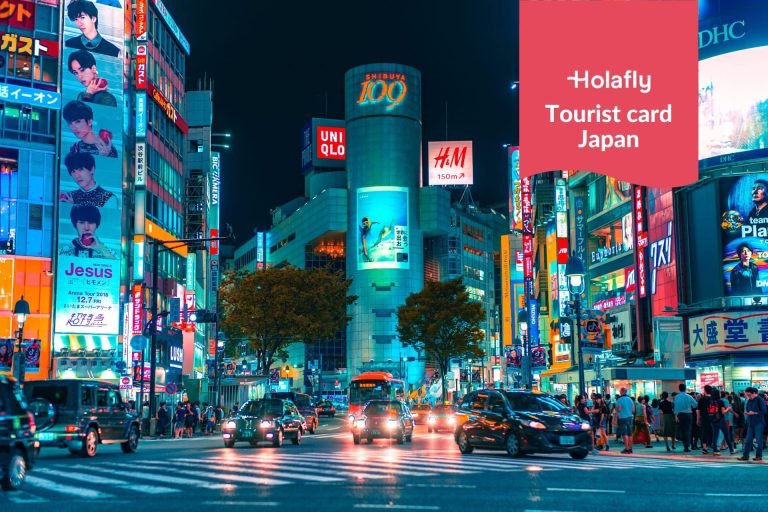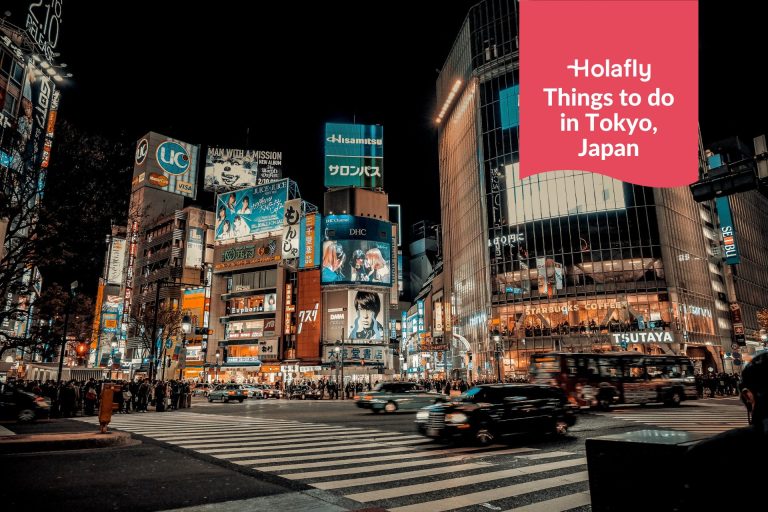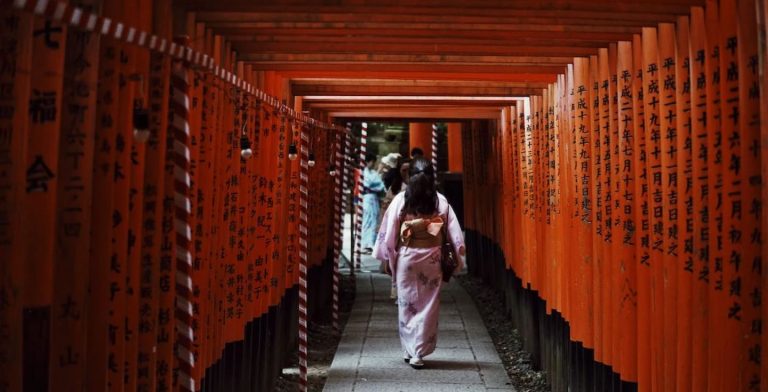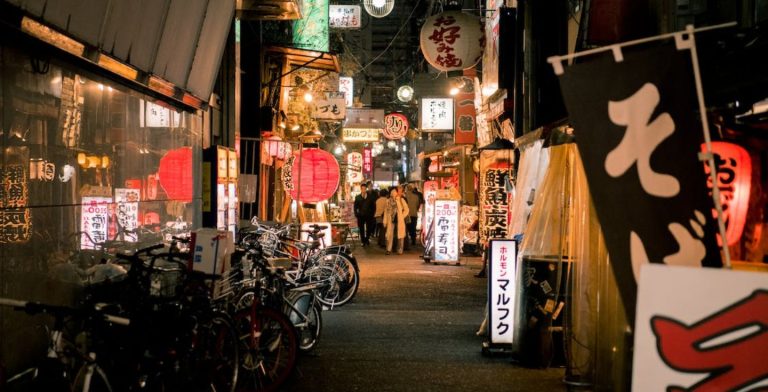Things not to do in Japan: 15 cultural norms
Arrive a seasoned tourist with this guide of things NOT to do in Japan. Save yourself the faux pas by not blowing your nose in public, using proper etiquette in hot springs, and more!
Planning a trip to the Land of the Rising Sun? Start by studying cultural differences, exploring our Japan travel guide, and learning what things not to do in Japan, right here.
We’ve put together this guide to save you the faux pas and arrive as seasoned tourists visiting Japan. From not blowing your nose in public to proper etiquette in hot springs, here’s everything you need to not do in Japan.
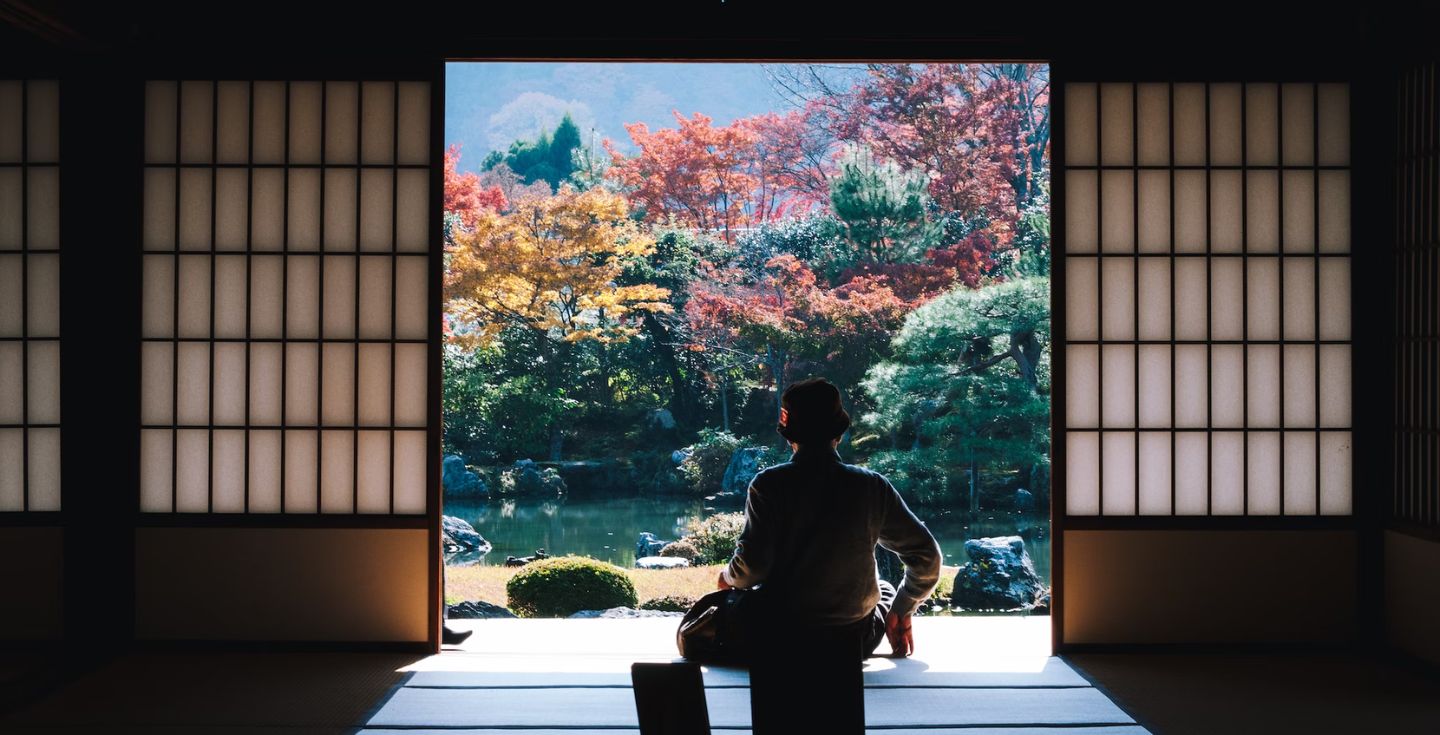
What not to do in public transportation
People stand in an orderly fashion, avoid public displays of affection, and respect personal spaces at the train station in Japan.
While the Japanese tourist card grants access to various forms of public transportation, a genuine experience requires following these key etiquette rules.
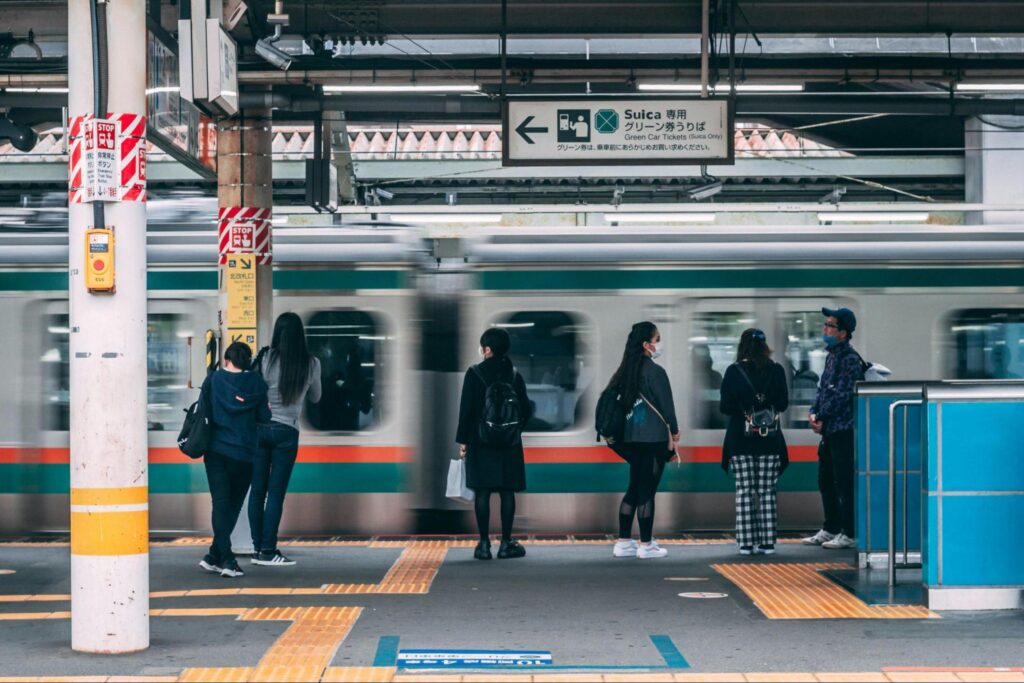
1. Don’t talk loudly
It’s best to speak in a quiet, respectful volume and tone when using public transportation in Japan. This is true for both phone calls and conversations with fellow travelers. Japanese people value respect and harmony.
As a traveler, you can show respect by honoring public transportation as a shared space and refrain from actions that might intrude on other people’s experiences.
2. Avoid eating or drinking on trains (except on long-distance trains)
Continuing the shared space theme, eating or drinking on trains is also discouraged to maintain cleanliness. Japan is known for its top-notch public transportation for useful norms like these.
Yet, the long-distance bullet train offers amenities designed for extended travel and you can eat, snack, and drink with the comfort of a tray table.
3. Don’t blow your nose
In general, Japanese society values behaviors that minimize the discomfort of others. To avoid any missteps, save your travels for when you’ve recovered from the sniffles and refrain from blowing your nose on public transit.
Also, Japanese people tend to cover their mouths and wear masks to avoid spreading germs and respect the communal space. Add a mask to your Japan packing list for bonus points.
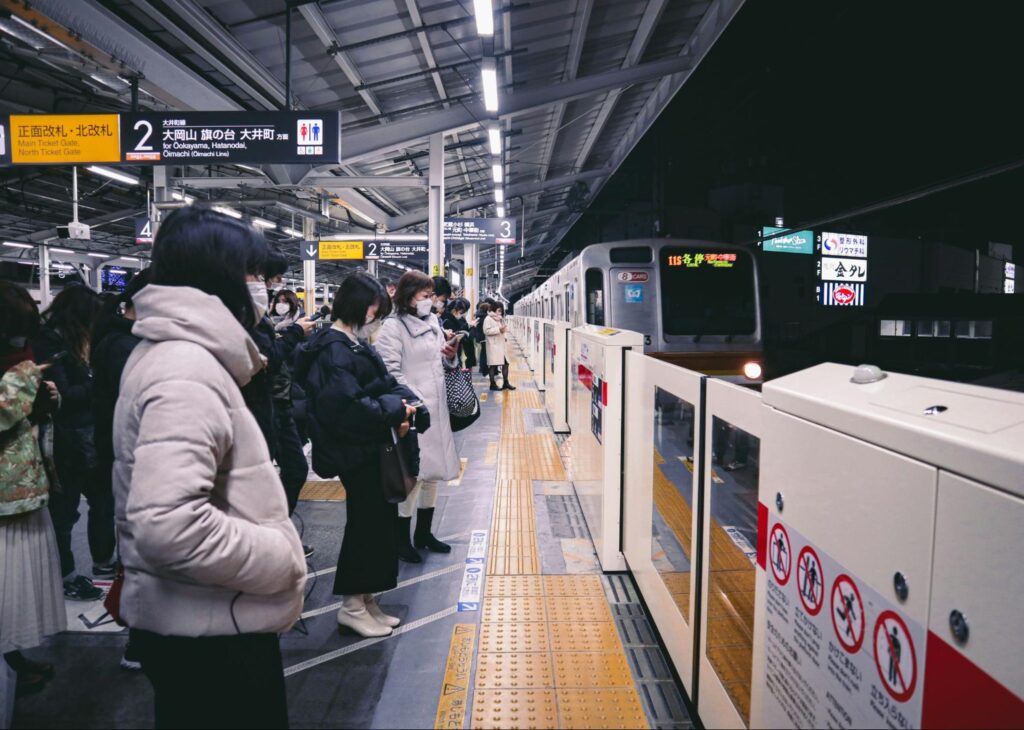
What not to do in restaurants
Bad manners aren’t the same in every language. Follow these things not to do in Japan to enjoy all of that delicious food in Japan as a respectful traveler.

4. Don’t give or receive money with one hand
In Japan, as well as in many other Asian countries, it’s considered rude to give or receive money with only one hand. This is particularly true at restaurants or in business settings.
Using both hands demonstrates respect, attentiveness, and care for the other person – values considered polite and important in Japan.
This is also practiced in countries such as South Korea, China, and Vietnam, where similar cultural customs around etiquette exist.
Keep this in mind if you’re traveling solo in Japan or when deciding who’s got the bill with friends or family on your trip.
5. Don’t leave a tip
While it may be custom in your own country, tipping is generally discouraged and can even be seen as rude in Japan.
Exceptional service is a standard in Japan, and restaurant staff are paid to perform their roles without expecting tips from customers. The same is true for your tour guide, they will not be expecting a tip.
6. Don’t stick your chopsticks upright in the rice
Besides upsetting the aesthetic harmony and delicacy valued in a Japanese meal, sticking chopsticks upright in a bowl of rice is taboo in Japanese culture.
This is because during funeral rituals a bowl of rice is placed on the altar as an offering to the deceased, with chopsticks standing vertically in the rice. The gesture is meant to symbolize the deceased’s connection to the living.
What’s the better alternative? Rest your chopsticks on the holder provided or place them across your bowl when not in use. Itadakimasu (it’s like “bon appetite” in Japanese).
7. Don’t pass food with chopsticks
Passing food to somebody else’s chopsticks is another one of those disrespectful things to do in Japan that could happen by accident.
It seems like a harmless gesture, but it, like our previous recommendation of what not to do in Japan, also resembles funeral rituals and is therefore taboo.
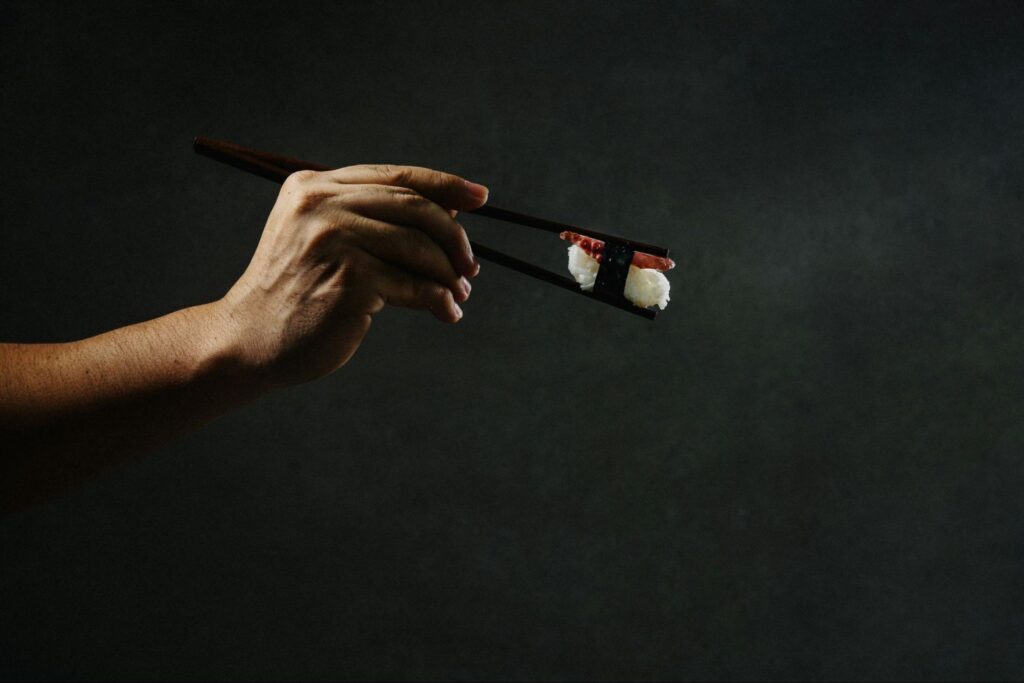
To share Japan’s delicious food, use serving utensils rather than chopsticks. This helps maintain respect for the dining customs – and gives you a break from your chopsticks practice.
8. Don’t pour soy sauce over rice
Traditional Japanese culinary philosophy rests on the pillars of simplicity, seasonal ingredients, and balance.
We name pouring soy sauce over rice as one of the things not to do in Japan as it disrespects the flavor balance and presentation, which are often important parts of preparation. It’s best to taste the food first and pour soy sauce on the side if you decide you want it.
9. Don’t serve yourself alcohol
It’s understandable if you want to pair that amazing food with a beverage. As most Japanese people value the collective, it can be considered rude to serve yourself.
To be a respectful guest when you visit Japan, serve others first, and you will likely be served too.
What not to do at Onsen (hot spring)
Whether it’s cherry blossoms in the spring or fall foliage in early November, visiting an Onsen is the perfect medicine, no matter the time of year you choose to travel to Japan.
Most Japanese people consider onsens special spaces for health and relaxation, with the tradition of bathing dating back over a thousand years.
Family members and individuals of the community alike join in this rejuvenating ritual celebrating Japanese culture and the beauty of natural medicine. To respect this ancient tradition, let’s look into things to not do in Japan when visiting an onsen.
10. Don’t enter an onsen without showering first
Much of culture stems from practical hygienic norms. As the water in the onsens are shared spaces, entering a hot spring without showering before could be considered disrespectful.
Most onsen have clearly marked and designated areas to shower before entering the water. Keeping with this cultural practice maintains both the cleanliness and purity of the hot spring, as many onsen waters come from natural sources.
11. Don’t bring towels into the bathing area
The difference between “inside” and “outside” in Japanese customs is very important. To respect this, don’t bring towels into the bathing area at an onsen.
The towels symbolize contact with the “outside” as they have been used to clean you before entering the onsen. Whereas the robe and bathroom slippers you will be given to use after you’ve showered are “inside” items.
To keep the designated areas clean for everyone, leave your towel in the lockers away from the water. You can then use your slip-on shoes and robe to respectfully cover yourself as you try out the variety of baths at the onsen.
General public behavior
We’ve learned how important respect is in Japanese culture, from public spaces like trains to intimate places like onsens, but there are even more must-knows for specific locations.
Avoid these cultural no-nos in the home, at sacred sites, and more on your trip to Japan.
12. Avoid pointing with one finger
In general, Japanese cultural norms revolve around harmony. Pointing with one finger can be considered rude, aggressive, and disruptive of the unity and harmony important in this culture as it’s a gesture that singles someone out.
If you make Japanese friends, consider using more gentle hand gestures to make your point.
13. Don’t take photos in sacred places without permission
Taking photos in sacred places without permission is another one of those things considered rude in Japan that you could easily do by accident.
You’ve traveled hundreds, even thousands of miles to revel in the sacred sites of Japan, it’s normal you’d want to take a picture to remember the moment or share it with friends and family. After all, visiting these amazing places is among the best things to do in Japan.
Yet, these sacred sites are filled with respect and care. To honor these places as a caring visitor, make sure to check with your tour guide or the rules of the site before taking pictures. For example, you might be intrigued by geishas in Kyoto’s geisha districts, but it’s crucial to maintain a respectful distance and not attempt to photograph, touch, or speak to them in public.
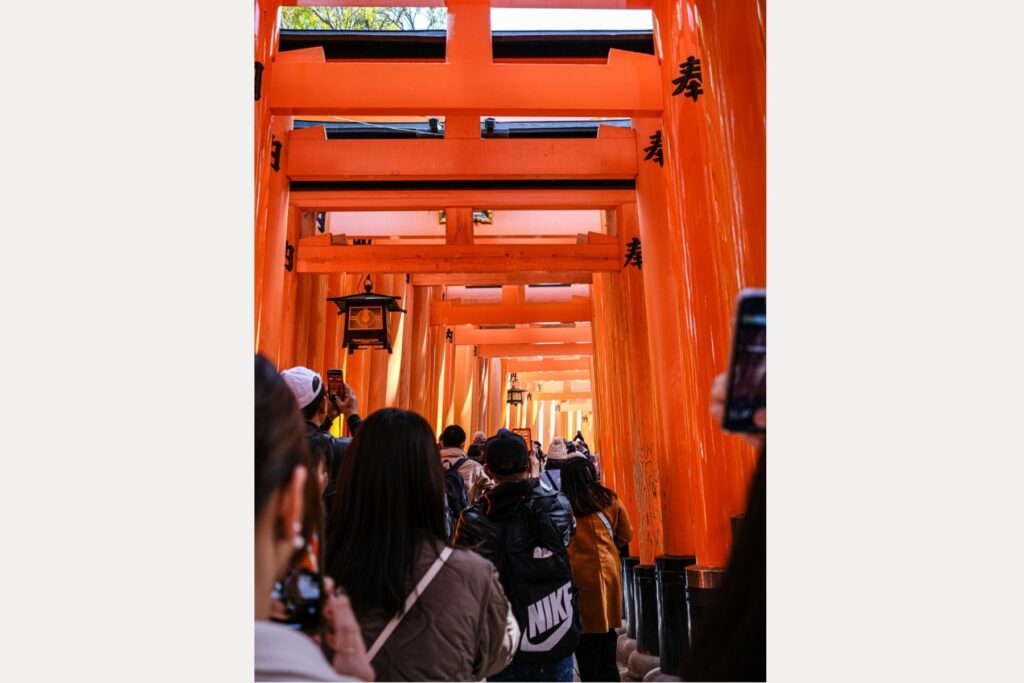
14. Don’t wear shoes inside homes
Remove outdoor shoes when entering a Japanese home. This keeps with the cultural norms of cleanliness and organization. You can wear indoor shoes or bathroom slippers once you’ve entered.
15. Don’t wear indoor slippers on tatami mats
To further respect Japanese hosts and customs, remove indoor slippers when walking on tatami mats. This delicate surface is traditionally meant to be walked on barefoot or in socks.
You will find tatami mats in traditional Japanese homes, at tea ceremonies, and in some authentic restaurants.
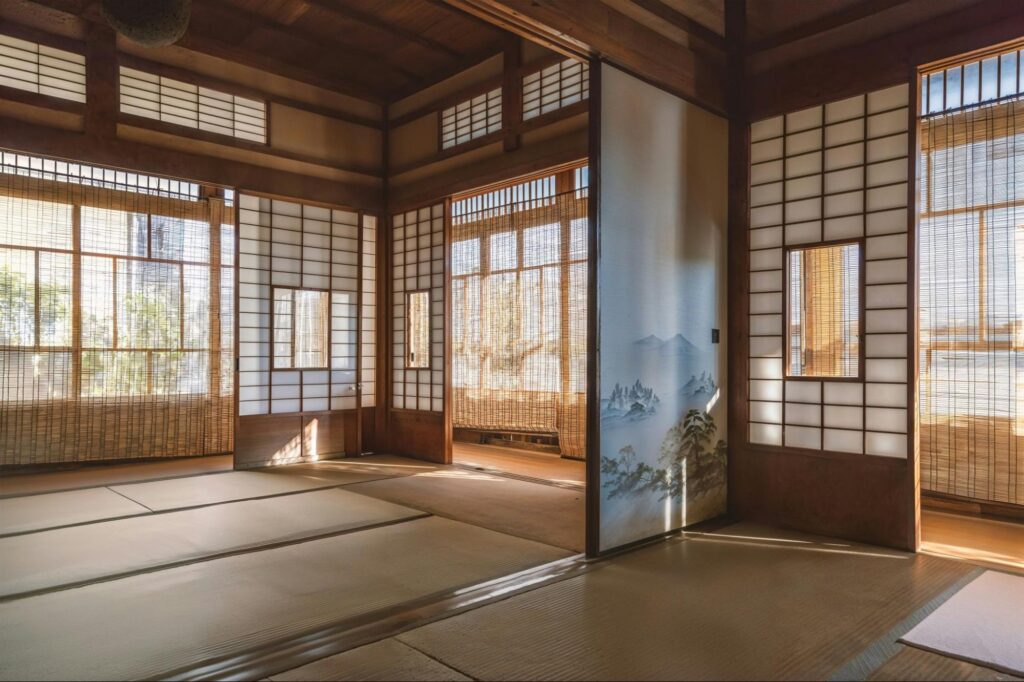
Don’t run out of data on your trip to Japan
You’ve got your list of things not to do in Japan and your packing list, but what about connection?
You’re going to need full access to your mobile phone to use Google Maps for finding your favorite spots, Google Translate in case a host doesn’t speak English, or to send photos to friends and family.
So, how can you get mobile internet access in Japan? There are various ways to use mobile phones when visiting Japan. To avoid high roaming charges, you can use pocket WiFi in Japan, a physical SIM card, or an eSIM.
The eSIM Japan from Holafly keeps you connected with local networks and offers flexible unlimited data plans and 24/7 customer support. You’re able to secure coverage in Japan before you land with easy installation and quick activation.

Our takeaways on things not to do in Japan
Though there are plenty of things on this list that may seem completely normal for you to do in your own country, many Japanese people could find them quite rare and even rude.
Yet, if you follow this guide of things not to do in Japan, you’re sure to steer clear of any travel fouls.
We love Japan for its culture, tradition, and innovation. We hope to help travelers enjoy their experience there as much as possible. Lay your chopsticks to the side, don’t raise your voice, and travel with peace of mind – stay connected with Holafly.






































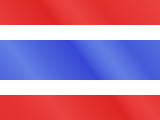







 Pay
Pay  Language
Language  Currency
Currency 


















 No results found
No results found





